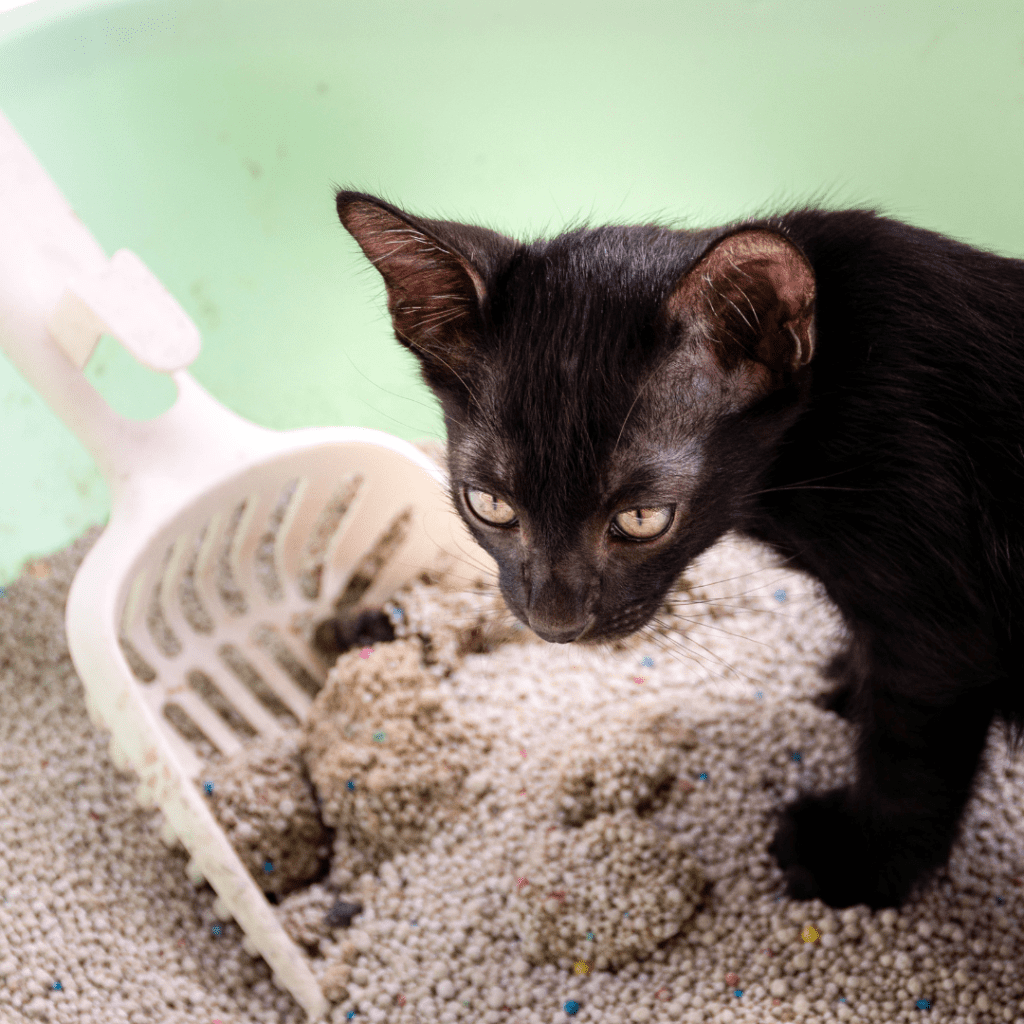There are so many wonderful reasons to choose a cat as your household companion but cleaning up the litter box does not top the list. We are lucky that cats have become domesticated enough that they willingly choose to eliminate in a litter box rather than on our floors. This behavior can often go awry and for any cat lover, having a cat that deposits their waste outside of their litter box can be a deeply frustrating experience. This behavior can have complex layers of motivation from health issues to territory disputes but is generally a cat’s call for help. Here are some tips that may help you to discover the motivation for the behavior and correct it.
Tip 1 – Clean the Litter Box
First things first, clean the litter box. Recent studies show that domestic cats have less concern about the TYPE of litter that you use and more concern about stepping in their own waste.
No matter how many cats you have, how many litter boxes and what type of litter, clean that box out every single day. Cats do not enjoy stepping in and around their own waste in order to do their business.
Tip 2 – Pick the Correct Sized Box
Providing an attractive litter set-up that fits both your needs and the needs of your cat(s) can go a long way to improve the litter box habits of your cat. Pick a box that is large enough for your cat. Cats tend to prefer an uncovered box that is large enough to turn around in. An open-top box with high sides to reduce litter scatter works well for most households. Your household should have one litter box for each cat plus one extra. Ideally, one box on each level of the home to reduce territory disputes and ease of access.
Tip 3 – Pick the Right Litter
Trial and error will help you to select a type of litter that your cat is happy to use. Some cats prefer a clay type, while others do better with a soft silica texture. Select clumping or non-clumping to fit your routine but always select an unscented brand. Remember that your cat’s sense of smell is much more advanced than ours so most fragrances can be overwhelming for them. The best litter is clean litter.
What if my cat still goes outside of the box?
If you have provided a clean and easily accessible litter box and your pet continues to eliminate outside the box, it is time to consult your veterinarian. Many health conditions can alter your cat’s litter box habits. Urinary tract infections, idiopathic cystitis, diabetes, kidney disease, and cancer are other possibilities. You can read more about these conditions and others in this article. If going outside of the litter box is a recurring issue, it’s time to ask your vet for a full exam as pain from other conditions, such as arthritis, can also be a motivating behavior and the change in litter box habits. No matter the reason, typically, going outside of the box can be your cat’s call for help.
Other causes for avoiding the litter box can be territory disputes between multiple cats, foot pain from rough litter, and residual scent left on rugs by other pets. Some cats act out their frustration and stress by urinating outside the box. Do a deep assessment of the household routine to determine if any recent changes or additions have caused increased stress to your cat. The addition of a new family member and even rearranged furniture can be enough to stress out some cats.
Hire An Animal Communicator
Often, the consultation of an animal communicator can be key to uncovering the cause. In one client consult, the family cat was able to indicate mold growth on the basement floor as his motivator. The family was unaware of a slow water leak in the basement that had resulted in chronic dampness and, thus, mold growth. The cat was able to point it out and resumed his previous litter box habits once the mold was gone.
In the majority of cases, cats prefer to use their own clean litter box rather than go on the floor and they usually feel that they have a valid cause for going outside the box. A cat will rarely go outside the box simply to “be naughty,” so punishment will not correct the behavior. Our challenge is to see the situation through their eyes and uncover their motivator, remedy the issue, and then reset the habit. The solution often involves Thinking Outside the Box!




